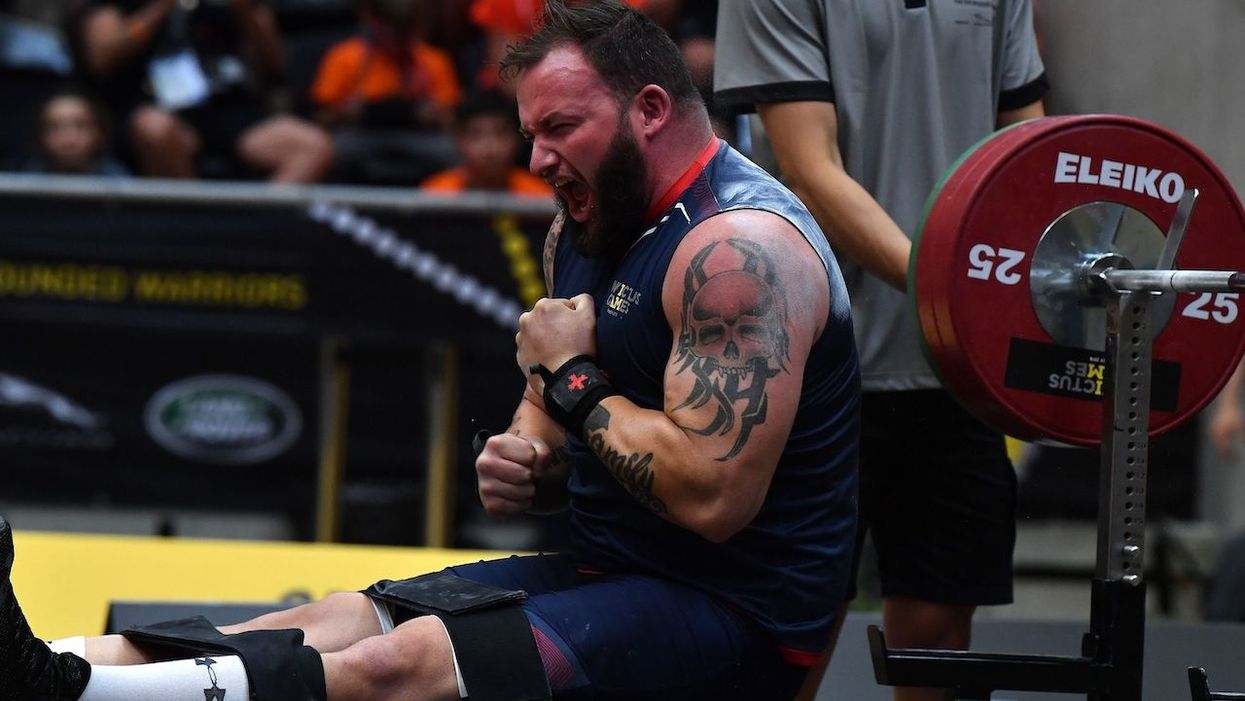
Saeed Khan/AFP/Getty Images

Report claims that the more masculine the man, the more likely he will engage in risky behaviors
The American Psychological Association has issued new professional guidelines for mental health professionals that claim "traditional masculinity" is "harmful" to boys and men.
The "Guidelines for Psychological Practice With Boys and Men" is based on 40 years of research, according to the APA's website.
"The main thrust of the subsequent research is that traditional masculinity — marked by stoicism, competitiveness, dominance and aggression — is, on the whole, harmful," according to the APA.
It also alleged that "the more men conformed to masculine norms, the more likely they were to consider as normal risky health behaviors such as heavy drinking, using tobacco and avoiding vegetables, and to engage in these risky behaviors themselves."
The APA protocol comes 12 years after the APA released its psychological guidelines for working with girls and women in 2007.
Boys are traditionally socialized to suppress their emotions, which "causes damage that echoes both inwardly and outwardly," according to the release.
Ryon McDermott, a psychologist at the University of South Alabama who helped draft the men's guidelines, said clinicians can use the guidelines to encourage men "to discard the harmful ideologies of traditional masculinity (violence, sexism) and find flexibility in the potentially positive aspects (courage, leadership)."
He went on to say that tough demeanor may be beneficial in some cases, such as for a soldier in a war zone, but the same traits can destroy relationships at home.
"There are times when you need to be able to power through," McDermott said in the release. "But if you only do that, and you believe that if you don't do that then you're somehow less worthy as a person, that's where you have a problem."
The report also pointed out that gender views have changed and that "transgender issues are at the forefront of the cultural conversation, and there is increased awareness of the diversity of gender identity."
"It's no longer just this male-female binary," McDermott said.
Transgender and LGBTQ students often face harassment from their peers and family, which may lead to depression and other harmful behaviors, researchers said.
"[B]oys and men who identify as gay, bisexual or transgender still face higher-than-average levels of hostility and pressure to conform to masculine norms," according to McDermott and Christopher Liang, a psychologist at Lehigh University in Pennsylvania who also worked on the guidelines.
The researchers said that black men and boys are viewed more harshly by law enforcement, schools, and others, compared to white men and boys.
"Boys and men of color [are] dealing with all their hurts and their struggles in ways that are consistent with masculinity," Liang said in the release. "So, 'be tough,' and 'don't show your hurts.' And they have to do this in a system where their behaviors are looked upon more negatively than boys and men from different groups."
David French, senior writer at National Review, tweeted his disapproval of the APA guidelines:
Our world teaches kids to “be yourself," but that rule often applies to everyone but the “traditional" male. The APA has declared "traditional masculinity" to be harmful. They're wrong: https://t.co/FMNgXUy20s
— David French (@DavidAFrench) January 8, 2019
We do our sons no favors when we tell them that they don't have to answer that voice inside them that tells them to be strong, to be brave, and to lead. We do them no favors when we let them abandon the quest to become a grown man when that quest gets hard https://t.co/FMNgXUy20s
— David French (@DavidAFrench) January 8, 2019
Psychologist Cameron Sepah also disagrees with the APA.
Shame on the @APA. As a psychologist, masculinity and femininity in their mature forms are inherently virtuous. “The main thrust of the subsequent research is that traditional masculinity—marked by stoicism, competitiveness, dominance and aggression—is, on the whole, harmful." https://t.co/GMHIM0IqWW
— 🧙🏻♂️Dr. Cameron Sepah (@DrSepah) January 8, 2019
Christian author Rod Dreher also took aim at the guidelines in a blog post on the American Conservative.
"To be fair, it's not all PC codswallop, but given the social justice warrior jargon throughout, I suspect this is mostly about psychologizing the gelding of American males. I do not trust Ryon McDermott, PhD, to decide what is and is not healthy masculinity," Dreher wrote.
"The more I think about it, the more Soviet this seems," he added. "Dissent from gender ideology (not just the transgender stuff, but the establishment's view of what men and women are)? Well, then you must be insane. Expert opinion says so!"
McDermott said there's little difference between the expectations for men and women.
"About a third of the traits that people consider to be positive aspects of masculinity, such as sacrificing for others and having strong morals, are actually expected more from women than men when researchers ask both men and women about the trait in isolation from wider gender cues," McDermott said.